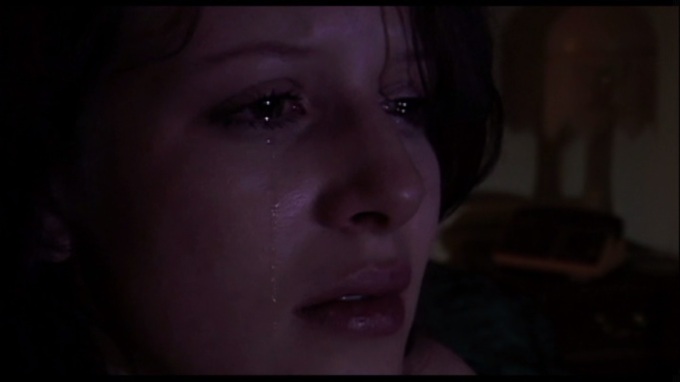
Lynch’s masterpiece, and I won’t countenance any opposition, INLAND EMPIRE is a challenging development on the möbius strip structure of Lost Highway and Mulholland Drive and into what appears to be a meditation on a murdered Polish sex worker, quite possibly from the 1930s, trapped simultaneously in a Sartrean (albeit this time seemingly purgatorial) hotel room and in a state of Deleuzian eternal recurrence, experienced both by her and we the spectators (she watches all the filmic events through a television screen, herself) as a rhizomatic system of assemblages that serve to investigate genealogies of gendered violence, ultimately in search of a line of flight.
Or, at least, that’s how best I make “sense” of INLAND EMPIRE. The keenest interpretation is one that doesn’t necessarily accept any (I say “any,” rather than “either”) of Laura Dern’s characters as the true protagonist. Characters merge, they fracture, they exchange roles, become each other’s mirrors, avatars, spiritual doppelgangers. In so doing, INLAND EMPIRE reflects on the ways in which we can become our own victims and perpetrators and, accordingly, how much self-liberation may feel like self-murder.
Constant motifs of holes speak to the permeable membranes of ontology and identity that come to define the constellation of bodies that make up the assemblage of characters and situations of INLAND EMPIRE, the folded silk reflecting the foldings at levels both spatial and temporal which Sue/Nikki/? as the Lost Girl’s avatar/s must strategically navigate to a point of self-realisation and radical self-realignment to achieve meaningful deterritorialisation and liberation. When that moment finally arrives, it is perhaps Lynch’s most sublime, moving and beautiful moment in his whole career. Indeed, it expresses a similar sense of pathos as the ending to The Tempest in which Prospero’s letting go is clearly Shakespeare’s as well. It comes as no surprise that INLAND EMPIRE was announced as Lynch’s final film for entirely the same reason: it’s a film, made of endings. It may not be an ending everyone likes, nor one everyone understands, but it is nonetheless perfect in its philosophy and its execution.
⭐⭐⭐⭐⭐
